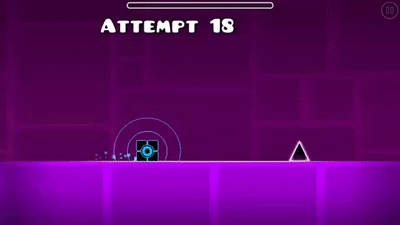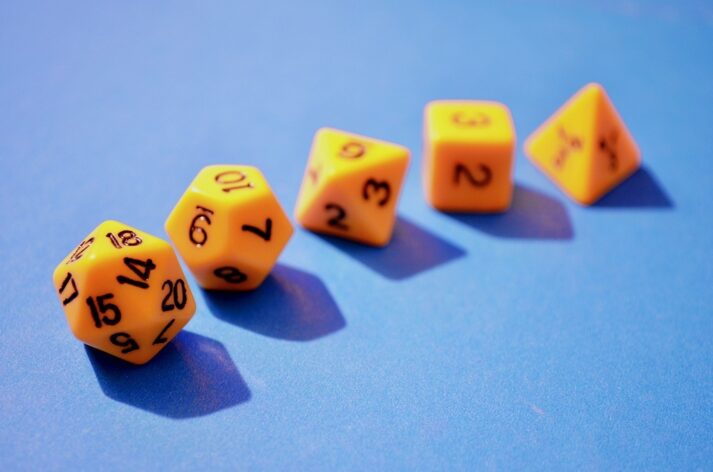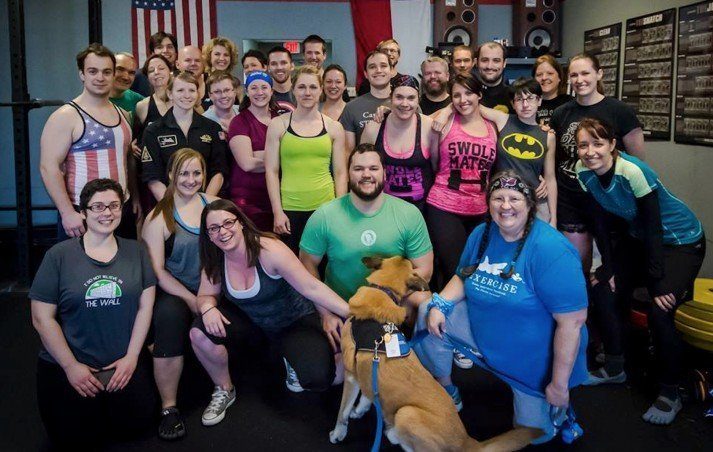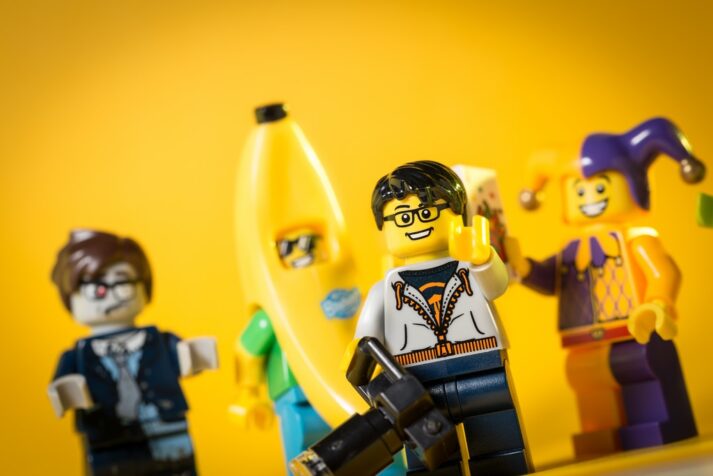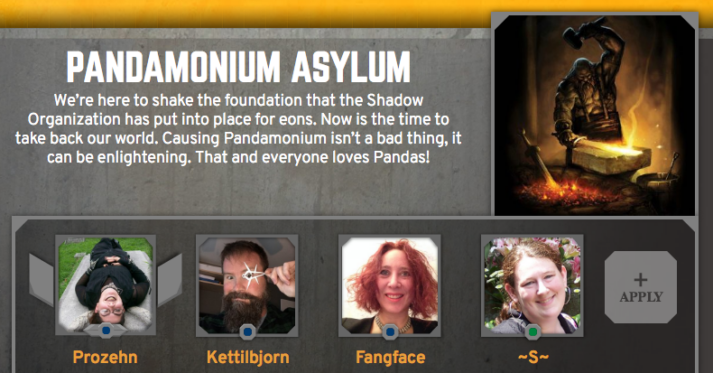This is an article from Team NF’s Mental Health Professional (and father of 3), Dan Schmidt.
Ever heard of “living in the moment,” been told to “stop and smell the roses,” or to just “go with the flow”?
Nothing but a bunch of tired clichés, constantly reworded slightly to clog up our Instagram and Facebook feeds by old acquaintances and weird relatives, right?
Perhaps, but there may be much more to these trite sayings than we think.
Do you ever pause a video game in the middle of a crucial point or battle just so you can “gather your thoughts” and “calm your nerves”? Just silencing your mind and focusing for a brief moment can really help you out.
You may not know it, but in a situation like this, you’ve just practiced something called “mindfulness,” a mental technique which enables you to handle problems better and reduce stress through balancing your emotions and mind.
Mindfulness is all the rage at the moment, but is it simply a cleverly marketed fad fuelled by hashtags and dodgy life coaches, or something that can perhaps help us on our quest to level up our lives?
So, if you don’t mind (get it?), let’s find out.
What the hell is mindfulness?

As with many “new-age” practices, the concept of mindfulness has actually been around for thousands of years. For us humans, thinking is kind of our thing.
It’s an incredibly simple, yet challenging, mental technique adapted from Buddhist practice to now suit non-religious contexts. Some people assume it’s about clearing your head and thinking about thinking “NOTHING.”

It’s actually more about stepping back and hearing your thoughts without judgment with a relaxed, focused mind.
“So what actually is it?”
Basically, mindfulness is just being aware of what you are doing, when you are doing it, and becoming a master of your mind, rather than being controlled by your subconscious impulses.
Even as you’re skimming through this article, how many other things do you have rushing through your head right now?
Thinking about what to cook for dinner?
Weekend plans?
How you should be working instead?
Did you already check your email?
Worrying about the future or dwelling on the past?
Our world and lives keep getting busier and more ‘urgent’ (thanks to our phones and the internet), and as a result, so do our minds. Our thoughts and feelings are constantly moving from one thing to the next without a moment’s rest.
In fact, did you know our minds are lost in thought 47% of the time?
That’s right, nearly half of our waking lives, we’ve got our minds on something else. Yeah, physically I’m reading the same freaking book to my kids for the 80th time, but I’m actually on auto-pilot thinking about my work deadlines. The next day I’m at work trying to meet those deadlines, but I’m now mentally planning the weekend with the kids.
It’s like that YouTube rabbithole we’ve all been down. You might have started searching for “how to do a push-up” and then all of a sudden it’s 2am and you’re watching an instructional video on how to ride a unicycle and you don’t even own a unicycle.
It’s like parts of our brain and bodies are at odds with the other parts.
If you want to level up your brain, spend better quality time with your loved ones, improve your work life, family life, and love life, it starts with developing mindfulness.
Don’t believe me? Ouch. That’s okay, I’ll give you the science because I’m nice like that.
Does mindfulness actually work?

“Will this practice actually achieve anything, or is this just another waste of time mixed with pseudoscience and inspirational instagram quotes?”
Great question – what kind of NF Rebel would you be if you weren’t also skeptical and demanding proof?!
A whole lot of evidence–based research has shown consistent, reliable, and reproducible results that mindfulness has a huge range of health and psychological benefits. It’s been around for ages and been a part of psychological therapies since the 70’s: there’s no denying it, it’s not going away anytime soon, and the benefits are astounding.
Supporting the brain’s capacity to stay focused on what you are doing, as you are doing it, can help you in so many ways, including:
- Stress relief
- Building resilience
- Regulating mood
- Overcoming addiction
- Improving sleep
- Managing depression and/or anxiety
- Increasing focus, concentration and learning capacity
- Reducing heart rate
- Improving immunity
- Boosting happiness
So, want a better quality of life, without having to spend anything, go anywhere, or really even do anything? Why not give mindfulness a shot if you haven’t already?
With a little bit of patience, regularly practicing mindfulness for just a few minutes each day can improve your happiness and help you better cope with whatever life throws at you (even if it’s a blue shell).
Practicing mindfulness regularly reminds us that underneath our troubling emotions and negative thoughts is a deep sense of calm, joy and peace.
Where is my mind?
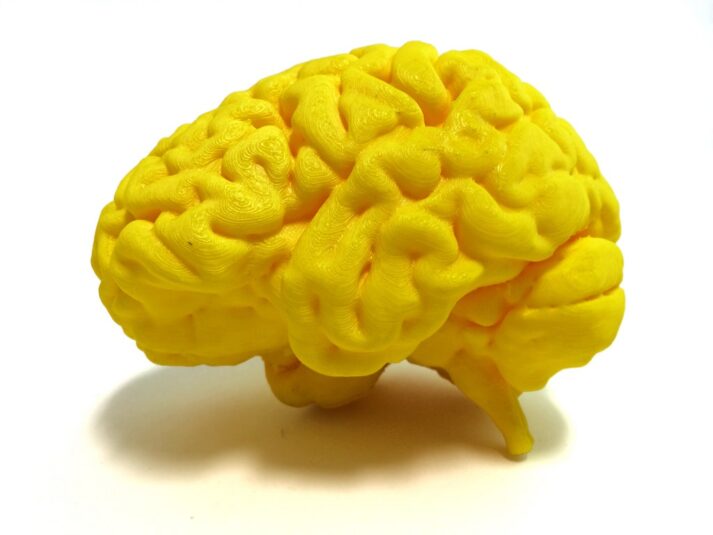
Stop and take a moment, right now. Ask yourself, as the Pixies did: “Where is my mind?”
Focus on this moment in your life, right now. Be present. Take notice of your posture, your breathing, the font of the words you are reading. Let your thoughts about this moment come to you, and listen to them without judgment.
Just focus on what you are doing, and ONLY that thing, right now. Just do it for a few seconds.
Congratulations, you’ve now practiced mindfulness. INT + 1.
Incredibly simple, but when practicing it for more than a few moments, it can be difficult to keep your mind from wandering. It’s like trying to herd monkeys hopped up on Mountain Dew, in a rainstorm, blindfolded.
At least, that’s what it’s like for me most of the time.
Think of it this way: As Jonathan Haidt puts it, you are a rider (your rational brain) atop an elephant (your emotional/subconscious side) – you do your best to guide the elephant and work with it, but it often does what it wants to do:
If you struggle with keeping your focus on something for more than a few seconds, you’re not alone. That device in your pocket is designed to distract you every 5 seconds, we’re in the age of RIGHT NOW and INSTANT, and every type of entertainment you need is within arm’s reach thanks to technology.
Here’s how you can start and develop your mindfulness practice, thanks to an amazing 80’s comedy.
Be the ball, Danny

Due to its simplicity, how one practices and gets the most out of mindfulness is really dependent on the individual. Some practice full-on meditation (more on that later), Nerd Fitness Yoga (or mindful movement), affirmations, breathing exercises, relaxation techniques or they simply find a quiet moment to themselves.
For me, whenever I have the time, or get stressed (which, with three young children, is more often than not), I get in touch with some advice from the sophisticated highbrow cinematic masterpiece, and my favorite movie of all time, Caddyshack:
Ty Webb, played by Chevy Chase, perfectly sums up mindfulness in a way I can understand with his golfer’s approach on Eastern Philosophy:
“Just relax. Stop thinking. Let things happen. Find your center. Be the ball.”
- Just relax – Get comfortable and focus on your breathing.
- Stop thinking – (Not completely) try to keep your thoughts from wandering away.
- Let things happen – Let your thoughts come to you, and listen without judgment.
- Listen to your mind. Be calm, fully aware of why you’re doing what you’re doing.
- Be the ball – Keep focused on the present moment.
For me, “be the ball” is all about staying focused on what I am doing, as I am doing it. Initially, “be the ball” just started with my golf game. Instead of overthinking my swing, I deliberately wouldn’t address the ball until I had cleared all thoughts from my head and JUST focused on the shot in front of me.
Over time, I started applying my “be the ball” concepts to other aspects of my life like study and work, and found it was an extremely powerful antidote to keep my easily distractible mind focused on what I needed to be doing.
When practiced regularly, I’ve found mindfulness brings more calm and focus into my insanely busy life, while also reducing stress and building efficiency.
Want a more direct benefit? You’ll eat less!
Studies have shown that people who eat mindlessly (while watching a movie or a TV show, scrolling through their phones, or playing a game) consume significantly MORE calories than people who just eat (meaning they are sitting at a table, eating food, and not doing anything else).
Me-di-tate, good times, c’mon!

“Deep inner sense of calm and peace? So, it’s like meditation, right? Like Dhalsim in Street Fighter?”
Well, kind of… Mindfulness is classified as a form of meditation, yes, but “meditation” is a large umbrella term that encompasses and broadly groups together a wide range of practices under one label, which is handy from a language perspective, but can become confusing when talking about specifics.
For example, if you met someone who said “I enjoy fitness,” does this mean they like running, lifting, walking, hiking, sports or pilates? Or, if you’re “really into gaming,” does this mean video games, tabletop, small Austrian villages, role-playing, or even gambling?
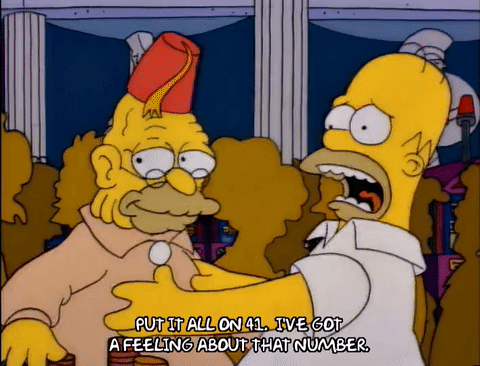
Meditation (which we’ve covered really well here at Nerd Fitness) is really broad, whereas mindfulness is quite specific. They are certainly complementary, and there is some overlap between the two, but I like to think of mindfulness almost as “gateway meditation” or “casual meditation.”
Many who start with mindfulness may go on to explore more about meditation if they’re looking to delve in even deeper, but others like myself are quite content with our mindful moments.
If someone asked me if I meditate, I’d say no. I don’t “meditate” in the traditional sense; I guess I’m channelling my inner Ron Swanson here.
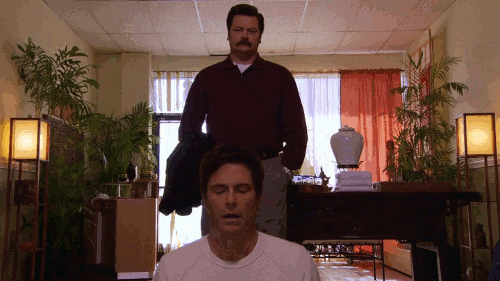
I don’t own a special cushion or one of those cool little benches, I’m not an overly spiritual or religious person, I’m not keen on crossing my legs for lengthy periods, and the smell of incense just reminds me of being hungover in Thailand.
But do I regularly exercise my mind for psychological and physical benefit? Hell yeah. It’s easy, free, convenient, beneficial and I can even do it on a plane, train, or automobile.
Now I’m certainly not trying to downplay meditation as a whole here at all (shoutout to all our rad Druids), as it’s proven that meditation is extremely powerful. Just know that you don’t need to meditate to practice mindfulness.
There are many ways you can increase your mindfulness in day-to-day life. This could be through specific activities like yoga, golf (my favorite) and art, or even by just paying more attention during regular daily activities like reading, cooking, walking, driving, eating or something as basic doing the dishes.
Regardless of the activity, just remember, mindfulness is simply awareness of the present moment. You can be mindful anytime, anywhere.
Start being more mindful today!
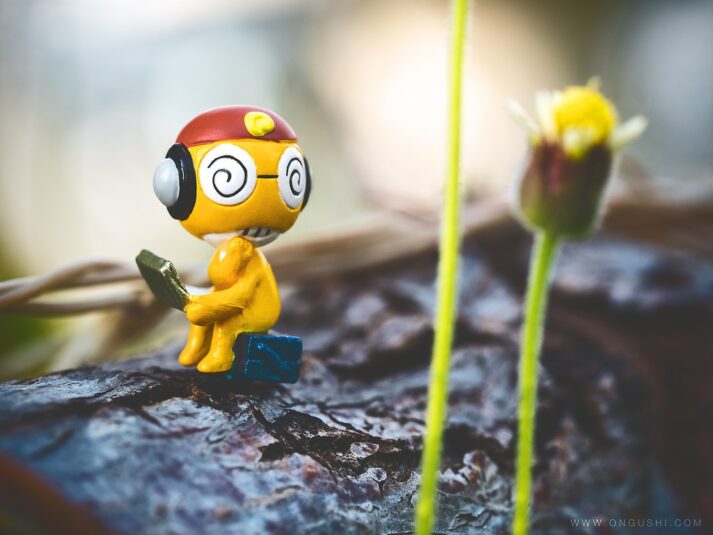
Mindfulness is something that everyone can develop, and it’s something that anyone can try. I’m racking my brain right now to think of an actual decent reason not to at least try it and I’m coming up empty. The mind is like a muscle, and just like we exercise and eat healthy to keep our bodies fit, practicing mindfulness is a way of keeping our brain fit and healthy too.
Let’s not allow important life moments to get away from us. Mindfulness keeps us focused when we need to be, and the benefits are amazing. Best of all, you can start right freaking now! (Well, maybe finish reading this first.)
Start practicing today by being mindful:
- Simply take a few deep breaths
- Go for a walk outside
- Choose a natural object from within your immediate environment and just focus on watching it for a minute or two
- Start to levitate (kidding)
A good place to start: notice a flower, the clouds, a tree, anything…perhaps not the sun though:
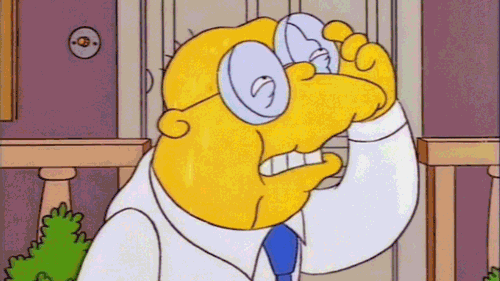
Try not to do anything except notice the thing you are looking at. Look at it as if you are seeing it for the first time. Carefully study every aspect of its configuration and just become momentarily consumed by it.
If you haven’t done it before, it’s initially a very strange experience. I totally agree with those of you thinking that this sounds like a bunch of hippie crap (once again, sorry Druids), but it can really help your brain reboot and become more focused and aware.
Give it a few minutes each day to begin with, that’s all we ask.
I’m not going to promise you that it will totally change your world and solve all your problems. In fact, it probably won’t.
OR WILL IT?!!?!?
No, probably not.
But it will open up the opportunity to get a different perspective on what is happening in your life. We can’t change everything that happens in our life, but we can change how we think about it, and with a strong mind, doing that becomes much easier.
Mindfulness is also a really personal experience; it can’t be guided by a scripture or orders. It can be introduced to a person by another who can explain its purpose and intention, like I may be doing for you now, but no one can direct you how to practice. That’s entirely up to you. Just try anything for a week and let us know how it goes.
So what have you got to lose?
Mindfulness is a positive, practical, easy and scientifically proven technique. It’s amazingly self-empowering to be aware of your experiences and see them for what they actually are, rather than getting caught up in the story behind them, which can often lead to mental health issues. Mindfulness is about letting go of the past (much like Nerd Fitness’ “We don’t care where you came from…”), focusing on the here and now and not stressing about the future.
The Mindful Eating Challenge
My dear nerdy friend, go forth and be mindful. With mindfulness becoming more prevalent, there’s a bunch of great mindfulness apps with programs to follow if you’re looking for some extra guidance.
So give it a try: whether it’s through full-on meditation, a guided app, “be the ball,” or simply by taking a more mindful approach to everyday activities like eating, the practice of mindfulness really can actively improve your life.
To make this more practical and concrete, I’m going to issue you a challenge:
During your next meal (or snack), I want you to ONLY eat.
Not “eat AND [insert activity]. Just eat:
No watching TV while eating.
No scrolling through your phone while eating.
No reading a book while eating.
Focus on the food in front of you, the person across from you if you are eating with somebody, and think about each bite you take.
That’s it.
Now, depending on how often you “eat AND [activity],” this could be brutally difficult.
Making this ONE change – only allowing yourself to eat without doing something else – could have dramatically positive consequences on your health. If you’re a mindless snacker, you can only ‘eat my snack’ without surfing the internet or watching tv.
If you always eat your meals in front of the TV, turn it off, and focus on the food you’re consuming.
Gunga gulunga,
Dan
photo credit: JD Hancock: Pinky & The Brain, Milton CJ deep space homer, frederic.gombert: Is it Dark? is it Light ?, National Institutes of Health (NIH): Normal Human Brain, Sean Davis Gunga Gulunga, cplbasilisk dhalsim looking for a fight, ongushi MY FINDER 110: Fuzzy Monday
source https://www.nerdfitness.com/blog/a-nerds-guide-to-mindfulness/

